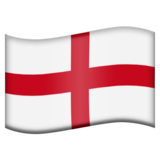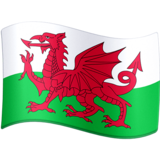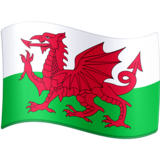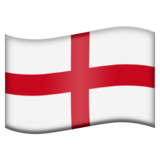Do you own an intriguing home?
You don’t have to live in a palace or a medieval mansion for it to have an enthralling secret past.
Even a humble one-up/one-down Victorian cottage has its story just begging to be discovered.
What stories is your home hiding?
📰 Tales of scandals hastily forgotten?
🧙♀️ Of carefully buried witches-bottles protecting your home?
🥾Or forgotten hob-nailed boots, left to warm in ancient boarded-up fireplaces...
🔥And strange marks on chimney-breasts protecting long dead people...
👻 Imagine the tales you can tell as you uncover your home’s secrets!☠️☠
Learn how you can unravel
your home’s journey through time.
Your home through time
Every house has its own story with its unique journey through time. This online course teaches you how to research its fascinating history.
🧙♀️ Imagine unearthing that the innocent mark on your home's mantelpiece was to stop witches from entering the building!...
⚔️Perhaps you'll discover that your house was named after a long-forgotten Victorian battle.
📜Maybe your modern house is built on land that has over a thousand years of documented history.
You will learn how to determine information such as:-
The building
❓When was your house built?
❓Were "bits" added to it over time? Chimneys? Outhouses? Indoor bathroom?
❓ Do you have an ancient outside loo - full of generations of resident spiders and creepy-crawlies?
❓Was your house converted from a mill? Or a converted school? Workhouse? Hospital? Or a church?
Its occupants
❓Who lived in your home in the past?
❓What were their occupations?
❓How did they live their lives?
Local history
❓What’s the story of your village? Was it once owned by pre-Norman Conquest Lords?
❓Was your house - or its occupants - involved in a juicy scandal?
❓What existed on the land before your house?
Unique online course
What you will learn...
✔️How to "read" your home and possibly date it.
✔️What original sources are available and when to use them.
✔️How maps can help to tell the story of your home.
✔️How to use vintage photographs and sketches.
✔️What finding aids, catalogues and indexes are available online and offline.
✔️How to use local and national archives online and offline.
✔️Sound historical research techniques.
How will you learn?
❖ The course is digital and conducted purely online.
❖ There is no face-to-face teaching.
❖ There are concise eBook lessons on each type of source.
❖ Each lesson has an accompanying easy-to-use worksheet for you to complete. This ensures that you research your own home throughout the duration of the course.
❖ There are informative videos to support the teaching.
❖ Each module is released fortnightly (except a two-week break between module 3 and 4).
❖ There are no assessments. But to get the most from the course, you should complete the worksheets as much as possible.
❖ It is up to you to complete the course as and when you wish. You can work at your own pace.
❖ You will have access to exclusive Facebook group to engage with other people also researching their home.
Researching during 2020/2021
❖ We are living in strange and bewildering times.
❖ Researching the history of your home can be an ideal past-time to while away the time you may now have on your hands.
❖ Many of the historical sources cited in throughout the course are available to you online via paid subscription sites.
❖ However, some records can only be consulted at national/county record offices, archives or libraries. As of late July 2020, archives, record offices and libraries are slowly reopening to the public. Before visiting any archive/record office, check their websites for further details. Their catalogues and indexes are likely to be available online - and a limited number of resources.
❖ If a source you need is still not available, you will have to make a note of that source in the course's worksheets. Then, once the current health crisis is over, you will be able to visit the archive to complete your research.
Course Details
Schedule
The course is run over 14 weeks.
This is a special presentation of the course available to you during the country's lockdown. You can join at any time during the country's lockdown. Once you join, the entire course will be available for one year from the date of your enrolment.
Each module will be released to you as shown below
👉Introduction: Immediately;
👉Module 1 - Building Strong Foundations (immediately);
👉Module 2 - Local Knowledge (2 weeks after you start the course );
👉Module 3 - Who lived in a house like this? (4 weeks after you start the course )
<==Two-week break for weeks 6 & 7==>
👉Module 4 - Land ownership, taxation & suffrage (8 weeks after you start the course );
👉Module 5 - Working buildings and their records (10 weeks after you start the course );
👉Module 6 - Court Records and Newspapers (12 weeks after you start the course ).
Geographical Coverage

 Each country has different land-owning and civil registration laws. For that reason, the course only covers houses in England and Wales. It does not cover houses in Scotland or the rest of the United Kingdom/Great Britain.
Each country has different land-owning and civil registration laws. For that reason, the course only covers houses in England and Wales. It does not cover houses in Scotland or the rest of the United Kingdom/Great Britain.

If you are living in areas outside of England and Wales, you are welcome to join the course. For example, if you are researching an ancestor's English/Welsh home. But, it is on the understanding that the course only covers English/Welsh historical research.
Prerequisites
Computers/iPads
The course is very practical in nature and you will complete worksheets. Therefore, you must have the following:-
💻 A desktop/laptop computer, or a Mac or an iPad with word processing software.
💻 Having only a Smart phone/iPhone is not sufficient for this course.
📷A camera phone (or camera) will be helpful (but not necessary) to take photos of your home and its surrounding area.
Computing Experience
You must be experienced with
💻 The use of computers for word-processing - including the basic manipulation of a document's tables. This can either be a Windows PC or an Apple MacBook.
💻 Searching the internet.
💻 Experience of Excel would be helpful - but not necessary.
You should be familiar with the following. Or willing to learn (outside of this course):-
💻 How to upload digital photographs or images onto your computer
💻 How to insert digital photographs/images into documents created on word-processing software.
💻 How to download information from the internet.
Paid-for subscription sites
📜 It would be helpful if you have a basic understanding of using genealogical and historical research paid-for websites (such as Ancestry, FindMyPast, The Genealogist, The National Archives) .
📜The course does not include access to these payment subscription sites. You must be prepared to pay for their site. Or you can use them free-of-charge at your local library or county record office.
Any questions?
-
How many hours per module?
As a very rough guide, you will need 10 to 15 hours per module. If you become totally engrossed in your research or have some very rewarding results, it may take you longer.
-
I have not done historical research before. Is the course for me?
Don't worry. The course is for all levels - from beginners to historical research to advanced genealogists/family historians, the course is suitable for all levels.
-
I have researched my family history. Is this course for me?
There is a great deal of cross-over between genealogy/family history and researching your house's history. However, there are some subtle differences - along with some sources you may not have used during your family history research. The course is most certainly for genealogists and family historians too!
-
What if I don't keep-up?
The each module will be released to you according to the schedule (see above). Don't worry if you don't keep up - you will have one year's access to this version of the course. So you can complete the research when you have time.
-
What if I get stuck researching?
There is an exclusive Facebook group supporting this course. You can post your queries in the Facebook group to see if someone else can help you. If you don't use Facebook, you can still take part in the course - but you won't have the benefit of being able to ask for help from other participants.
-
Can I ask the instructor questions?
Kate will obviously help out on support questions regarding the delivery of the course or technical issues. You can ask questions in the Facebook group. However, Kate cannot help you with your own research. This is very much a self-learning course and is not tutor led.
-
Will I find out everything about my house?
To a large extent that is up to the availability and survival of records relating to your house. There is absolutely no guarantee with historical research that you will find out all the information. Records get destroyed or mislaid. However, this course will give you a good chance to uncovering your home's past.
-
My house is modern/only a few decades old.
If you are interested in social and local history, then the course may still be for you. You could learn about the land - and its previous owners - before your house was built.
-
Do I have to visit archives/record offices?
A great many records are online, with more records being digitalised all the time. Much can be researched online. But not everything. If you want to dig deep into your house's past, it is likely you will have to visit your local record office. Additionally, some sources can only be consulted at The National Archives in West London. Alternatively, Kate has a private-client service whereby you can commission her to research in archives on your behalf. However, as of Spring 2020, all record offices, archives and libraries are closed. During the country's lockdown, you will have to research as best you can online, and then list the sources you need to consult once everything has reopened.
What students have said...
✔️Your material [is] most approachable...
✔️All your practicable tips [are] really useful opened up a new world of research...
✔️I have started a "book" where I will be using the material I discover to tell the story of my home...
✔️You have sent me off in search of chimneys and graffiti!...
✔️Very helpful resources.
✔️ The advice on collating information, keeping a research notebook and noting sources makes a lot of sense and have helped me to be much more organised in my work...
✔️ I now know considerably more about online resources!
✔️ I had not considered items such as Pevsner before and have never really looked at Domesday in any detail prior to this exercise...
✔️ I had never looked at items produced by diarists, gazetteers etc., which I found interesting...
Meet your instructor
Kate J Cole
 I’m a social and local historian specialising in house-histories and genealogy.
I’m a social and local historian specialising in house-histories and genealogy.
I’ve written seven social history books on a variety of historical topics. These include towns and villages across the east of England. And a book about the First World War using eye-witness accounts of the conflict.
I also write local history articles for magazines, present talks about social history to groups and societies. And I’ve been interviewed by various radio stations.
I have a Masters degree in local history from Cambridge University, an Advanced Diploma in English Local History from Oxford University and a First Class Honours degree in history from the Open University.
A former techie working for City of London corporates, I also hold a post-graduate diploma in the management of software projects, and post-graduate certificate in technology management.
I am passionate about helping you unlock the past.
Books by Kate J Cole

Happy clients for my social history talks

As featured in/on

